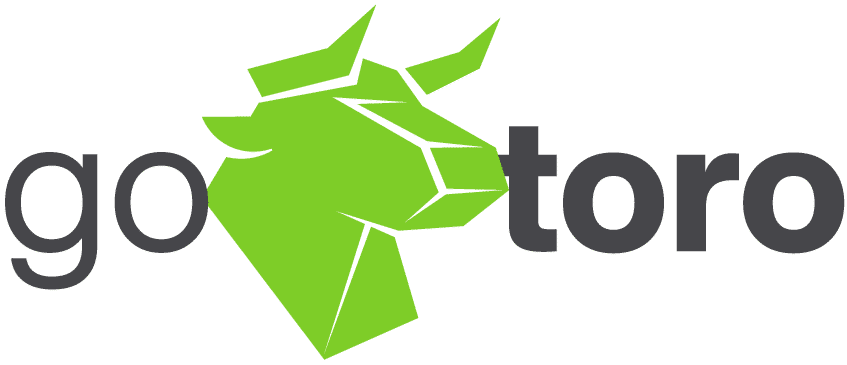In today’s ever-evolving job market, understanding what is recruitment marketing and its pivotal role is more important than ever. Recruitment marketing refers to the strategies and tactics employed by an organization to attract, engage, and nurture talent before they apply for a job. This innovative approach combines marketing tactics with the recruitment process, ensuring that companies not only attract the right talent but also position themselves as desirable employers.
As we step into 2024, the landscape of recruitment marketing continues to transform, driven by technological advancements, changing candidate expectations, and a competitive job market. This transformation is significantly impacting how businesses approach talent acquisition and how candidates perceive and choose their employers.
In this article, we will delve into the most notable recruitment marketing trends for 2024. These trends reflect the latest in technology, strategy, and human resource development, offering a comprehensive guide for organizations looking to refine their recruitment marketing strategies. From the integration of AI and automation to the emphasis on employer branding and the growing importance of diversity and inclusion, these trends are set to redefine the recruitment marketing arena. We will explore each trend in detail, providing insights into how businesses can adapt and thrive in this dynamic environment.
Stay tuned as we uncover these pivotal trends and provide actionable insights to help you stay ahead in the competitive world of recruitment marketing.
1.) Embracing AI and Automation

In the realm of recruitment trends for 2024, AI and automation are at the forefront, transforming recruitment marketing in profound ways. These technologies are streamlining and enhancing the recruitment process, bringing efficiency and precision to talent acquisition.
Transforming Recruitment Marketing
- AI and automation technologies are making significant inroads in recruitment, enabling better candidate targeting, and efficient sorting of applications.
- They offer personalized experiences to candidates, making the recruitment process more engaging.
Real-World Examples of AI-Driven Recruitment Tools
- Tools like chatbots for initial candidate interactions and AI-based screening software are examples of how AI is improving candidate engagement and screening efficiency.
- Companies like LinkedIn use AI to match job postings with suitable candidates based on their profiles and past job searches.
Predictions on Future Advancements
- Future advancements in AI for recruitment marketing may include more sophisticated predictive analytics and enhanced candidate matching systems.
- AI-driven tools are expected to become more adept at removing biases from the recruitment process.
2.) The Rise of Employer Branding

As we navigate through 2024, the significance of employer branding in recruitment strategies is becoming increasingly evident.
Growing Significance in Attracting Top Talent
- Employer branding is crucial in portraying a company as an employer of choice.
- A strong employer brand helps in attracting top talent and reducing turnover rates.
Strategies for Building a Strong Employer Brand
- Strategies include showcasing company culture through various media, offering competitive benefits, and maintaining a positive presence on review sites.
- Transparency in company operations and values also plays a key role in building a strong employer brand.
Case Studies of Successful Employer Branding
Companies like Google and Zappos have been successful in building strong employer brands through unique culture, employee benefits, and a focus on innovation and employee satisfaction.
3.) Diversity and Inclusion Initiatives
Diversity and inclusion are increasingly becoming focal points in recruitment marketing, as reflected in the recruitment trends for 2024.
Role in Recruitment Marketing
Recruitment marketing plays a key role in promoting diversity and inclusion by reaching out to diverse talent pools and creating inclusive job advertisements.
Best Practices for Inclusive Recruitment
Best practices include using inclusive language in job postings, showcasing diversity in employer branding materials, and implementing unbiased recruitment technologies.
Success Stories
Companies like Accenture and Johnson & Johnson have successfully implemented diversity and inclusion initiatives, resulting in a more diverse workforce and improved company performance.
4.) Leveraging Social Media and Digital Platforms
Social media and digital platforms are playing an increasingly significant role in recruitment marketing strategies.
Current Trends in Social Media Recruitment
- Platforms like LinkedIn, Facebook, Instagram TikTok, and Twitter are widely used for job postings and employer branding. Platforms like TikTok reached 1.5 billion users in 2023, with some users treating the platform like Google, to answer their questions.
- Social recruiting involves not just posting jobs but also engaging with potential candidates through content and interactions.
Tips for Using Digital Platforms
- Companies should focus on creating engaging content that highlights their culture and values.
- Using targeted advertising and analytics on these platforms can help in reaching the right audience.
Future Predictions for Social Media in Recruitment Marketing
- The use of social media in recruitment is expected to become more sophisticated, with greater emphasis on employer branding and candidate engagement.
- Interactive features like live Q&A sessions and virtual job fairs on social media platforms may become more prevalent.
5.) Personalization in Recruitment

In line with 2024 recruitment trends, personalization in recruitment is gaining momentum, revolutionizing how organizations interact with potential candidates.
Importance of Personalized Communication
- Personalized communication is key in making candidates feel valued and engaged.
- Tailoring messages and interactions based on a candidate’s interests, background, and previous interactions enhances the recruitment experience.
Techniques and Tools for Personalization
- Utilizing CRM (Customer Relationship Management) tools to track candidate preferences and history.
- Implementing AI-driven algorithms for customized job recommendations and personalized email campaigns.
Impact on Candidate Experience and Employer Brand
- Personalization significantly improves candidate experience, leading to a positive perception of the employer brand.
- It helps in building long-term relationships with potential candidates, beneficial for future hiring.
6.) Data-Driven Recruitment Strategies
The use of data and analytics in recruitment is a significant trend in 2024, shaping more effective and efficient recruitment marketing strategies.
Role of Data and Analytics
- Data and analytics help in understanding the effectiveness of different recruitment channels and strategies.
- They provide insights into candidate behavior, preferences, and the recruitment funnel performance.
Case Studies
- Companies like Google use data analytics to optimize their recruitment processes, from sourcing to hiring.
- LinkedIn’s data-driven approach in candidate sourcing and engagement showcases the power of analytics in recruitment.
Predictions on Data in Recruitment Marketing
The future of data in recruitment marketing includes more advanced predictive analytics and the use of big data to identify talent trends and needs.
7.) Employee Advocacy Programs
Employee advocacy is emerging as a powerful tool in recruitment marketing, as seen in 2024 recruitment trends.
Explanation and Benefits
- Employee advocacy involves employees promoting their company as a great place to work, both offline and online.
- It benefits recruitment marketing by leveraging authentic, trusted voices to attract candidates.
Creating an Effective Program
- Encourage employees to share their experiences and stories on social media and professional networks.
- Provide training and incentives to employees for participating in advocacy programs.
Successful Examples
- Companies like Salesforce and Deloitte have robust employee advocacy programs, showcasing their workplace culture through their employees’ voices.
8.) Focus on Candidate Experience

Candidate experience remains a cornerstone of recruitment marketing, with its importance only growing in 2024.
Importance in Recruitment Marketing
- A positive candidate experience enhances a company’s reputation and aids in attracting top talent.
- It involves every touchpoint of the recruitment process, from job application to interviews and feedback.
Best Practices
- Streamlining the application process, providing timely communication, and giving constructive feedback are key best practices.
- Incorporating AI for personalized communication and feedback can further enhance the experience.
Future Evolution
In 2024, more immersive experiences like virtual reality job trials and interactive interviews are expected to enrich candidate experience.
9.) The Growing Need for Flexibility and Remote Work Options
Flexibility and remote work options are becoming crucial in recruitment marketing, aligned with the 2024 recruitment trends.
Influence on Recruitment Marketing
- The demand for flexible and remote work options is reshaping job offerings and employer branding.
- Marketing these options effectively is becoming a key differentiator in attracting talent.
Strategies for Marketing
- Highlighting flexible work policies and remote work opportunities in job postings and on company career sites.
- Using employee testimonials to showcase the benefits of flexible work arrangements.
Future Trends
The future will likely see an increase in hybrid work models and more emphasis on work-life balance in recruitment marketing.
10.) Interactive and Immersive Recruitment Experiences
As we examine recruitment trends for 2024, a key area of focus is the emergence and integration of interactive and immersive technologies, such as Virtual Reality (VR) and Augmented Reality (AR), in the recruitment process.
Emergence of VR and AR in Recruitment
- VR and AR technologies are transforming traditional recruitment methods, offering interactive and engaging experiences for candidates.
- These technologies provide a virtual yet realistic insight into the work environment and culture, aiding candidates in making informed decisions.
Examples in Recruitment Marketing
- Companies are using VR to simulate job roles and work environments, allowing candidates to experience a day in the life at the company.
- AR applications are being developed for job fairs and recruitment events, where candidates can interact with digital elements superimposed in the physical world.
Potential Future Impact
- The future impact of VR and AR in recruitment is vast. They are expected to revolutionize the candidate screening and interview processes, making them more interactive and engaging.
- These technologies could also play a significant role in global recruitment, allowing candidates from different geographical locations to experience an immersive recruitment process remotely.
As we embrace the dynamic recruitment trends of 2024, the arena of talent acquisition is witnessing remarkable transformations. Staying informed and adaptable to these trends, from AI-driven processes to immersive candidate experiences, is crucial for any organization seeking to excel in talent management. A pivotal aspect in this evolution is programmatic job advertising, a technology that revolutionizes how job opportunities are marketed to potential candidates. Embracing this innovation can be a game-changer in reaching the right talent efficiently and effectively. To stay ahead in the ever-evolving world of recruitment, integrating programmatic job advertising into your strategy is a step towards future-proofing your hiring process. Explore the forefront of recruitment excellence and discover how programmatic job advertising can transform your talent acquisition strategy – request a demo today.


